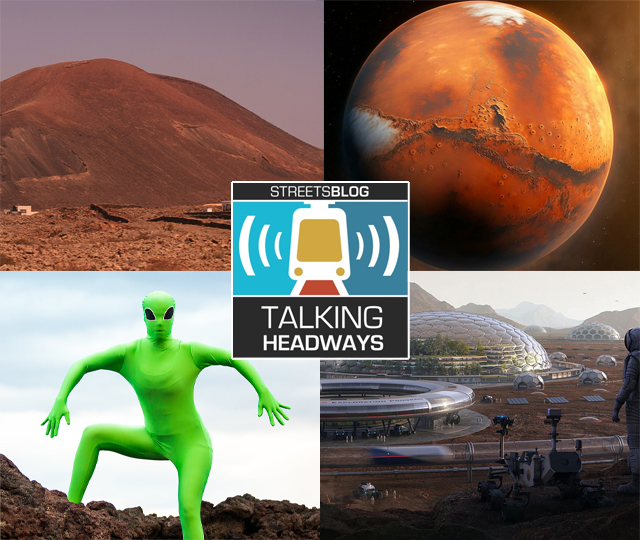This week, we’re joined by Tufts professor Justin Hollander to talk about his new book The First City on Mars: An Urban Planner's Guide to Settling the Red Planet. We talk about the importance of urban planners in thinking about cities and transportation on Mars, what we can learn from Antarctica and the International Space Station, and what a Mars metro region might look like.
See below for a written excerpt from our conversation. A full, unedited transcript can be found here.
Jeff Wood: How much do you think planning on Earth can be translated to planning on Mars?
Justin Hollander: Yeah, well, certainly when we’re talking about challenging environments on earth, there’s like a whole kind of way, they call them the Winter Cities Movement. So I drew a lot on different research in those communities — places where it gets really super cold, it’s winter for a long part of the year. These are places where access to plant life is minimal or non-existent. And then deserts — deserts also we can learn a lot from in terms of challenging access to water. You know, how do you conserve water, how do you recycle it? All those things are really applicable.
And another thing I talk a lot about in the book is low Earth orbit. We have colonized low Earth orbit. It’s the tens of thousands or more of different space debris and satellites, but it’s also the International Space Station. People have been living up there for decades. So, you know, we have a lot we can learn from our experiences, our human experiences, both here terra firma, on the ground, but also, you know, up there.
Jeff Wood: Well, tell me a little bit about ISS and, and kind of how that informed your thinking, because I think that it is actually a much better kind of indicator of what’s needed to be done than say, science fantasy or science fiction.
Justin Hollander: The advances that they’ve made in terms of being able to recycle air, recycle water, recycle and manage waste — it’s really extraordinary. I think a lot of those lessons are directly applicable — the ability to be able to grow plants and food in the space station. This is all stuff that I drew on extensively in my research to be able to talk about what it would take to be successful on Mars.
Jeff Wood: Let’s talk about the conditions of the planet itself on Mars. I mean, when you’re thinking about Mars, what would future residents have to plan for? What would be the things that were the most necessary in order to not only just get there and,, hop around for a few days, but actually, you know, sustain life there?
Justin Hollander: Mars is much further away from the sun so, on average, much colder. That is a challenge for humans to be able to be properly heated. In our template that is presented in the book, the idea of living below ground was really a big feature that helps to kind of modulate temperatures. That’s one kind of consideration. The other is just, you know, air, how do you breathe? That’s gonna be really hard.
There’s a lot of science that has developed techniques around extracting oxygen from the Martian atmosphere. Various types of test cases have been done here on Earth. So there’s some confidence level that that might be successful.
And then there’s a question of water. There’s pretty strong scientific consensus that there is abundant water sources on Mars. Most of it is subsurface, pretty far, and in the soils in the regolith. That’s not gonna be so easy to extract, but it is possible and that you can also actually extract water from the atmosphere. There’s believed to be sources of H2O hydrogen and oxygen in the atmosphere, so that could be extracted as well. If you can cover those, you’re kind of halfway there.






